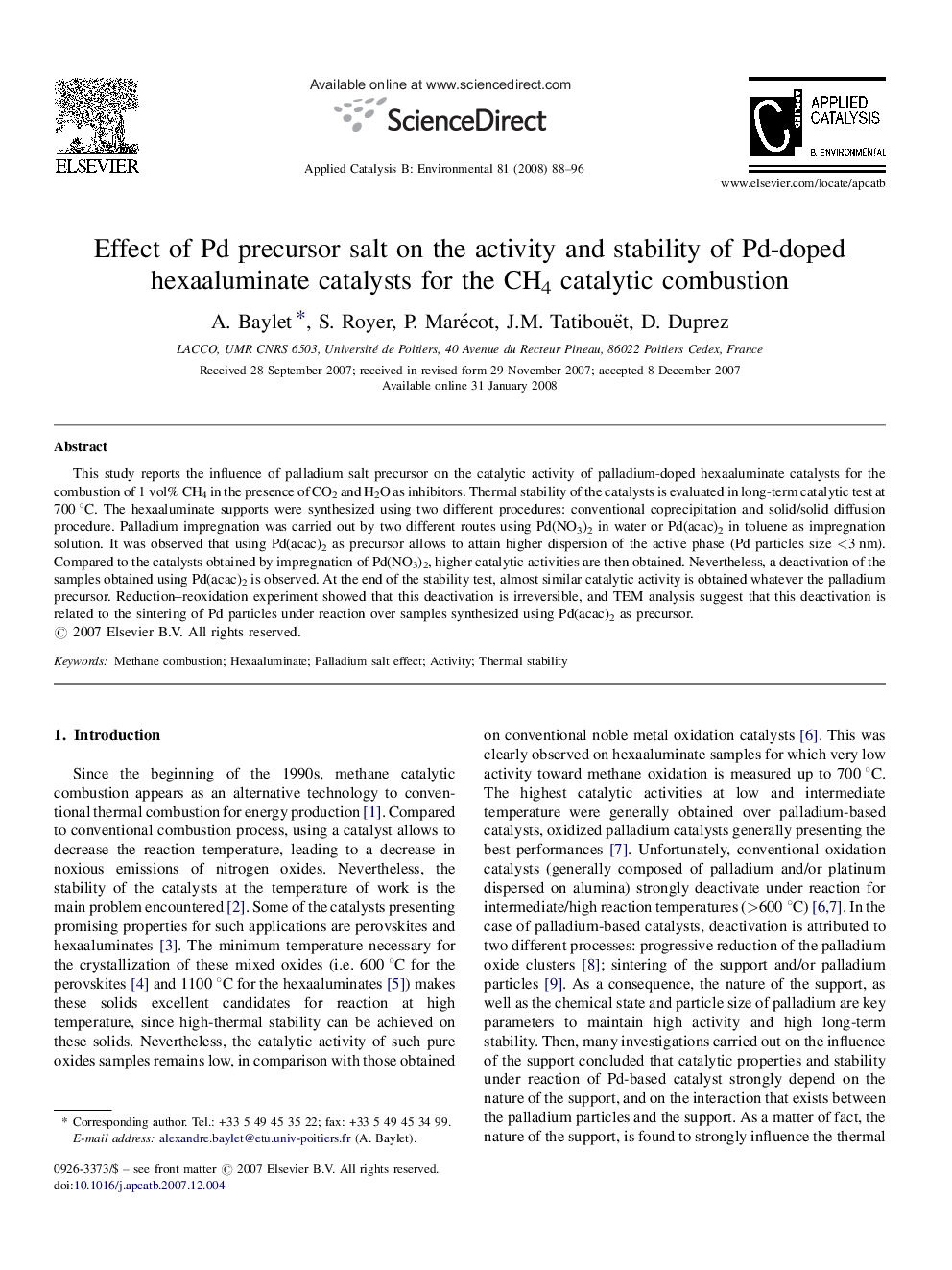| Article ID | Journal | Published Year | Pages | File Type |
|---|---|---|---|---|
| 48479 | Applied Catalysis B: Environmental | 2008 | 9 Pages |
This study reports the influence of palladium salt precursor on the catalytic activity of palladium-doped hexaaluminate catalysts for the combustion of 1 vol% CH4 in the presence of CO2 and H2O as inhibitors. Thermal stability of the catalysts is evaluated in long-term catalytic test at 700 °C. The hexaaluminate supports were synthesized using two different procedures: conventional coprecipitation and solid/solid diffusion procedure. Palladium impregnation was carried out by two different routes using Pd(NO3)2 in water or Pd(acac)2 in toluene as impregnation solution. It was observed that using Pd(acac)2 as precursor allows to attain higher dispersion of the active phase (Pd particles size <3 nm). Compared to the catalysts obtained by impregnation of Pd(NO3)2, higher catalytic activities are then obtained. Nevertheless, a deactivation of the samples obtained using Pd(acac)2 is observed. At the end of the stability test, almost similar catalytic activity is obtained whatever the palladium precursor. Reduction–reoxidation experiment showed that this deactivation is irreversible, and TEM analysis suggest that this deactivation is related to the sintering of Pd particles under reaction over samples synthesized using Pd(acac)2 as precursor.
